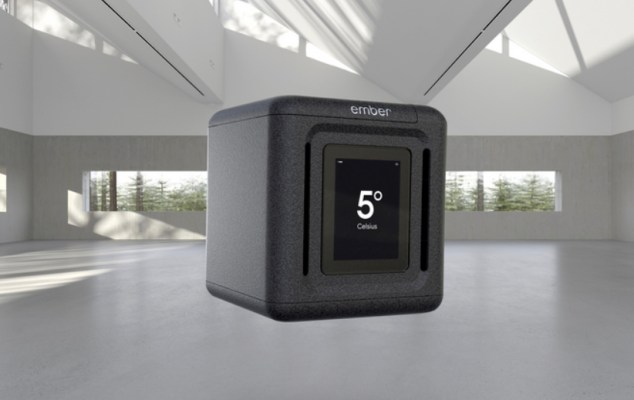Last year, Ember outlined one of the more fascinating expansions of recent vintage we’ve seen in the hardware space. Primarily known for its smart mugs designed to keep their contents hot, the firm took a long, hard look at the cold chain — specifically, the transport of medicine across distances. What began as a conversation was bolstered by a $23.5 million raise last year, and now the firm has a new product — and partnership to showcase where things go from here.
The centerpiece of the new direction is the Ember Cube — what the company calls “the world’s first self-refrigerated, cloud-based shipping box.” The technology is designed to update some antiquated shipping technologies for important cargo that still rely on this, like cardboard, Styrofoam and disposable ice packs. At its core is Ember’s proprietary temperature control technology designed to keep the contents between 2-8 degrees Celsius (36-46 degrees Fahrenheit).
Temperature/hudmidity information, along with GPS location, is shared via the cloud, so that information can be tracked during shipping. On the rear of the device is a “Return to Sender” button that will populate a return label on the device’s E Ink screen. The company says the Cube can be reused “hundreds of times.”
Today’s announcement also finds the company partnering with healthcare logistics firm Cardinal Health.
“Our partnership with Ember utilizes technology solutions to set a new industry standard for real-time visibility and product integrity, while also providing transformative waste reduction,” president of Cardinal Health Specialty Solutions Heidi Hunter said in a release tied to the announcement. “The Ember Cube will be a particularly relevant solution for the many cell and gene therapies that are in the drug development pipeline, due to their temperature sensitivity, high value and need for real-time integrated tracking.”
Cardinal will be the first major firm to pilot the new device, set to launch later this year.
